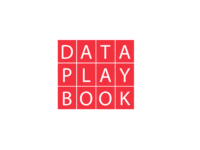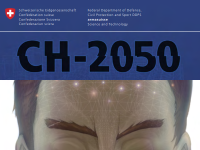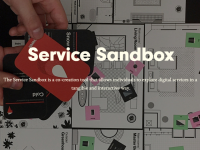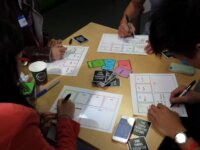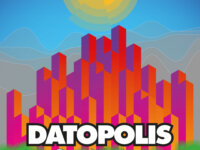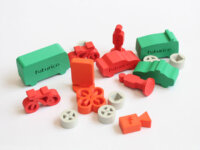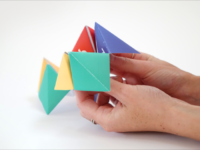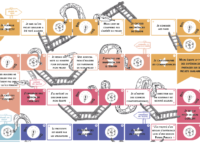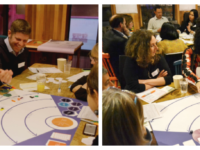Toolkit Navigator
A compendium of toolkits for public sector innovation and transformation, curated by OPSI and our partners around the world

This Playbook compiles over 120 short exercises, games, scenarios, checklists and handouts to help individuals and teams discuss, learn, and share all aspects of the data lifecycle. The Playbook is divided into 10 modules that can be modified to suit individual needs and composed of facilitator tips to help strengthen data capacity. The resource is modular and includes specific exercises and example workshop templates. This content is also available in Arabic.
The transition game is an adapted version of “Le jeu de la transition” developed by the French Think Tank FING (Fondation Internet Nouvelle Génération) and adapted to a national defence environment, covering topical areas such as cyber and information warfare, man-machine teaming, and situational awareness and reconnaissance.
It guides groups through several steps:
1) Think about how different context factors and "internal tensions" shape today's state (ordering principles, norms,…
The Service Sandbox is a visual, playful, co-creation tool that allows individuals to explore digital services in a tangible and interactive way. The sandbox can be used to test an existing service or to create new ones. The resource is oriented toward designing interior environments, especially digitalising environments, but could be used more broadly. The tool consists of three phases (build, ideate and define), plus a pitch template for taking the process one step further. According to the…
Our Futures is a game for discovering new ways of engaging the public in thinking about alternative futures. The basic premise of Our Futures is that participants are randomly offered a series of constraints by drawing cards and rolling a dice, which serve as a primer for imagining a participatory futures activity. The game is played either with a group of individuals competing against each other or in teams in 30-75 minutes. The game has three different gameplay models of varying scope and…
This resource is an imagination game that challenges players to collaboratively and competitively describe objects from a range of alternative futures. The object of the game is to come up with the most entertaining and thought-provoking descriptions of hypothetical objects from different near-, medium-, and long-term futures. The card deck can be downloaded and printed and contains cards, instructions, playsheets, and blank cards that you can customize with your own content. The website also…
The Open Data Board Game is a board game built around the creation of tools using data. A physical board game journey might involve clearing datasets for release as open data, achieving a certain data quality, and ultimately connecting data sets with a start up, SME or government to deliver economic, social and environmental benefits.
It is a Github code repository that contains all the things that are needed to create the game. It is a work in progress, according to the publisher. Requires some…
The IoT Service Kit is a board game that brings domain experts out of their silos to co-create user-centric IoT experiences. The Kit consists of three major components: maps, tokens and cards, which can be downloaded and printed/3D printed. It includes source content on GitHub as well. Its stated goals: achieve mutual understanding, stay tangible, and make complex simple. It is best for those who have some understanding of service design processes and principles as well as IoT technologies.
Here you find a selection of the Danish Design Centre’s commonly used tools. It includes information about the methods, instructions for tool use, and printable materials.
The tools are divided in three categories that are used at different stages in the design process - and often in this order: Explore, Co-create, and Give the future concrete form.
Explore helps the participants to open up and get around all aspects of the issue. Co-create contains tools that help participants get in-depth…
Designed with the assistance of the CNFPT and the DGAFP, this game is inspired by "Chutes & Ladders": a board game where the team must realize the major stages of their project, and sometimes encounters ladders (these "little miracles" that win several boxes at once) and chutes (these pitfalls that push back the project carrier). The resource is in French.
The Game of Life 2050 draws on scenarios for a sustainable European society in 2050. It is an interactive board game in which players consider four scenarios that describe the radical changes needed to be living within key environmental boundaries by 2050.
The game takes a minimum of 2 hours to run (ideally 4 hours) and involves 5-7 actors (each played by one person or in pairs) and one Games Master.
Play consists of three ‘rounds’ in which actors are given a set of circumstances that have…

